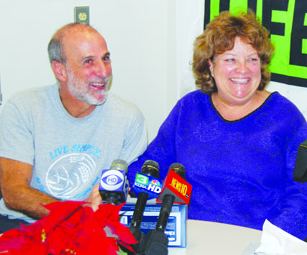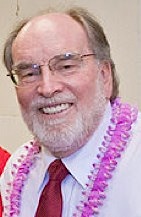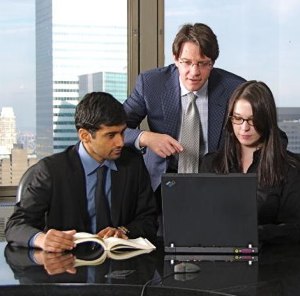 2010 was a year of disasters — Haitian earthquake, Gulf oil spill and Pakistani flooding — yet it was also a year of stunning generosity, technological prowess, and compassion. These are our top ten picks to highlight the seriously good news that deserves pondering as we move into 2011:
2010 was a year of disasters — Haitian earthquake, Gulf oil spill and Pakistani flooding — yet it was also a year of stunning generosity, technological prowess, and compassion. These are our top ten picks to highlight the seriously good news that deserves pondering as we move into 2011:
10) Wal-Mart Commits $2 Billion to Combat Hunger in US
The biggest company in the richest country realized a need to tackle the growing hunger problem in the United States and stepped up to donate $2 billion in food and grants to hunger relief organizations. The five-year initiative, “Fighting Hunger Together,” announced in
May pledges $1.75 billion worth of food from Walmart stores, warehouses and Sam’s Club outlets. $250 million in grants will also support hunger relief organizations, including 10 million for children’s lunch programs during the school year and summer months.
9) Street Vendors Foil Car Bomb Attempt in NYC
A veteran, Lance Orton, part of a brotherhood of 105 disabled veterans who are street vendors in Times Square showed the world in May that they were not just there to sell, but also to help, alerting police to the ticking car bomb parked illegally on a downtown New York street. The device had apparently started to detonate on a Saturday Night in the busy square. “A state law going back to the civil war gives vending licenses to disabled veterans,” reports ABC News.
8) Health Insurance Reformed to Benefit American Patients

This year marked a new day for health insurance in America. For the first time, if you or your children get sick and you want to buy health insurance you can no longer be denied coverage due to illness. Ending some of the worst abuses of the insurance industry, a new law makes it illegal for health insurers to place any limits on the amount of medical care you can receive — previously known as “lifetime (or annual) caps”. Additionally, no company can arbitrarily cancel your policy without the burden of proving fraud, or deny your claims without offering options for appeal. Young people can now remain on family insurance policies until age 26.
7) Huge Parkinson’s Breakthrough: Disease Power Switch Found
A transformative study has uncovered both the key cause and an immediate treatment for Parkinson’s disease. Researchers reported their discovery that brain cells in Parkinson’s patients shut down the energy-producing capacity of fuel that powers healthy brain function, resulting in a devastating shortage. The findings, announced in October, indicate that boosting the energy-producing capacity of the mitochondria with current FDA approved drugs early on may prevent or delay the onset of Parkinson’s.
6) Generosity in Hard Times: Record Giving Boosts Haitian and American Poor
 With coins and dollars, and an occasional diamond ring or gold coin, Americans donated a record $139 million to the Salvation Army’s Red Kettle campaign last Christmas, despite a continued economic slump.
With coins and dollars, and an occasional diamond ring or gold coin, Americans donated a record $139 million to the Salvation Army’s Red Kettle campaign last Christmas, despite a continued economic slump.
The tally represented a seven percent increase over the previous record announced last year, and came at a time when demand for social services had skyrocketed. Charitable donations in the UK that year similarly rose by £400 million to total of £10.6 billion.
One month later, when the world heard the news of the devastating January Haitian earthquake, donations began to pour in. For the first time, mobile phone donations of $10 each racked up huge totals — in excess of $30 million by month’s end. Even the homeless were contributing to the Haitian disaster and by year’s end, $3.5 billion in funds or in-kind contributions had been raised, with more pledges not yet delivered.
5) Crime Continues to Decline, Falling to 20-year Low
No one know why, but violent crime and property crime rates continued to fall across the US and Canada, despite continued joblessness. Reports of violent crime decreased 6.2 percent, dropping for the fourth straight year and property-crime reports were down 2.8 percent across the United States in the first six months of 2010, compared with the same period a year earlier. This follows a three-year trend of decreasing crime rates, with property crimes hitting a 20-year low.
Also notable, the level of crime in England and Wales had fallen to its lowest since records began in 1981. The annual British Crime Survey showed offenses fell by 9 percent in 2009-10, allaying fears that a deep recession would cause a jump in criminality.
4) CEO Gives 20 Million Dollar Company to its Employees

A retiring CEO gave his entire company to the workers who have made his natural food company a success. Founder of Bob’s Red Mill Natural Foods, Bob Moore, turned 81 on Feb. 15 and announced the news to his employees in Oregon.
With everyone at his birthday celebration, Bob announced the new Employee Stock Ownership Plan that would transform Red Mill, which generates revenues exceeding $20 million a year, into an employee-owned company.
3) World On Track to Cut Poverty in Half
Despite the global economic downturn, the world is still on track to meet a key U.N. goal of halving the number of people living in poverty by 2015, according to a report released in June. The UN confirmed that the overall poverty rate is expected to fall to 15 percent by 2015, which is half the number seen in 1990, with the U.N. meeting its Millennium Development Goal.

2) 57 Billionaires and Millionaires Pledge to Give Away Half Their Wealth to Charity
More than 50 of the wealthiest families and individuals in the United States have committed to giving away the majority of their wealth to charitable causes before they die, by joining the “Giving Pledge”, launched this summer by billionaires Bill Gates and Warren Buffett.
The United States has roughly 400 billionaires, about 40 percent of the world’s total, according to Forbes. The 57 signatories who have pledged to date could generate $600 billion dollars for charity.
1) Chilean Miners Rescued in Historic Effort After 69 Days Trapped Underground
Everyone remembers the number one feel-good story of the year: the rescue of 33 Chilean miners in October.

The world sat in awe of the technological wizardry of rescuers who freed the trapped miners from more than 2,000 feet of rock, through a narrow makeshift escape shaft. The unprecedented and complex rescue operation utilized expertise and materials donated from around the world, helping to free men who had been underground for 69 days — more than anyone on record. They emerged, each riding in a tiny capsule for 15 minutes, to the cheers of rescuers, officials and family members. Large video screens were set up in public places across Chile to let people watch and cheer as each miner was hauled to the surface and freed.
 Separated from his family during the Korean War, Sam Han was sheltered by strangers and eventually was adopted by a Minnesota professor and became a successful business executive.
Separated from his family during the Korean War, Sam Han was sheltered by strangers and eventually was adopted by a Minnesota professor and became a successful business executive.



























 With coins and dollars, and an occasional diamond ring or gold coin, Americans donated a record $139 million to the Salvation Army’s Red Kettle campaign last Christmas, despite a continued economic slump.
With coins and dollars, and an occasional diamond ring or gold coin, Americans donated a record $139 million to the Salvation Army’s Red Kettle campaign last Christmas, despite a continued economic slump.





 Between 2002 and 2007, women created almost twice as many businesses as men, according to data from the Census Bureau — and they continue to open start-ups in the post-recession era.
Between 2002 and 2007, women created almost twice as many businesses as men, according to data from the Census Bureau — and they continue to open start-ups in the post-recession era.



